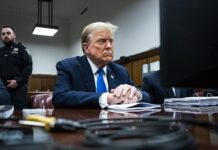The opposition candidate for president in Nigeria,General Muhammadu Buhari is gaining momentum over the incumbent president, but the March 28 election result will be contested no matter what.
So says Teneo Intelligence in a note out today by Analyst Manji Cheto, who thinks the former military leader and challenger has “an edge,” but that “a last-minute upset by the incumbent president remains a possibility.”
Cheto adds: “President Goodluck Jonathan is banking on recent reports of the ‘successful’ counterinsurgency offensive against Boko Haram to help turn the tide on his battered reputation … However, the momentum of Jonathan’s rival Muhammadu Buhari of the main opposition All Progressive Congress continues to grow. Despite the absence of reliable polling data in Nigeria, the most important signal that he could unseat the president is the change in the voting trend this time round. Buhari’s support in the north (his home region) appears to be unwavering – he has consistently defeated his rivals there in the past three election cycles. This support is only likely to increase thanks to a growing anti-Jonathan sentiment in the region … Buhari’s strong momentum represents a serious threat to many powerful business and political interests that have benefitted from the incumbent People’s Democratic Party’s 16-year political dominance. Consequently, entrenched interests will not easily concede a Buhari victory.”
Eurasia Group last week cited polls and trends that indicate Buhari could have a 60% chance of winning, depending on how a considerable tranche of uncommitted voters leans. Our blog post on the report was met with some rancorous comments by Barron’s Emerging Markets Daily readers. See “Nigeria’s Buhari Could Win, Disrupting Oil.”
Boko Haram is a force to reckon with no matter who wins: African nations headed by Chad are seeking United Nations approval for a joint force to combat the Islamic terrorist group in Nigeria. Boko Haram recently declared allegiance to ISIS, the Middle East terror group.
Nigeria relies on oil revenue, and the severe decline in oil prices over the past year – the international Brent oil price is down another 2.9% today to $54.28 per barrel — has combined with civil unrest to push investor sentiment lower. The Global X MSCI Nigeria ETF (NGE) is down 2% today, down 21% year to date, and off by nearly 39% over the past 12 months. The Vanguard FTSE Emerging Markets ETF (VWO) has turned in a flat performance so far this year, the Market Vectors Africa Index ETF (AFK) is down 6%.
blogs.barrons.com



